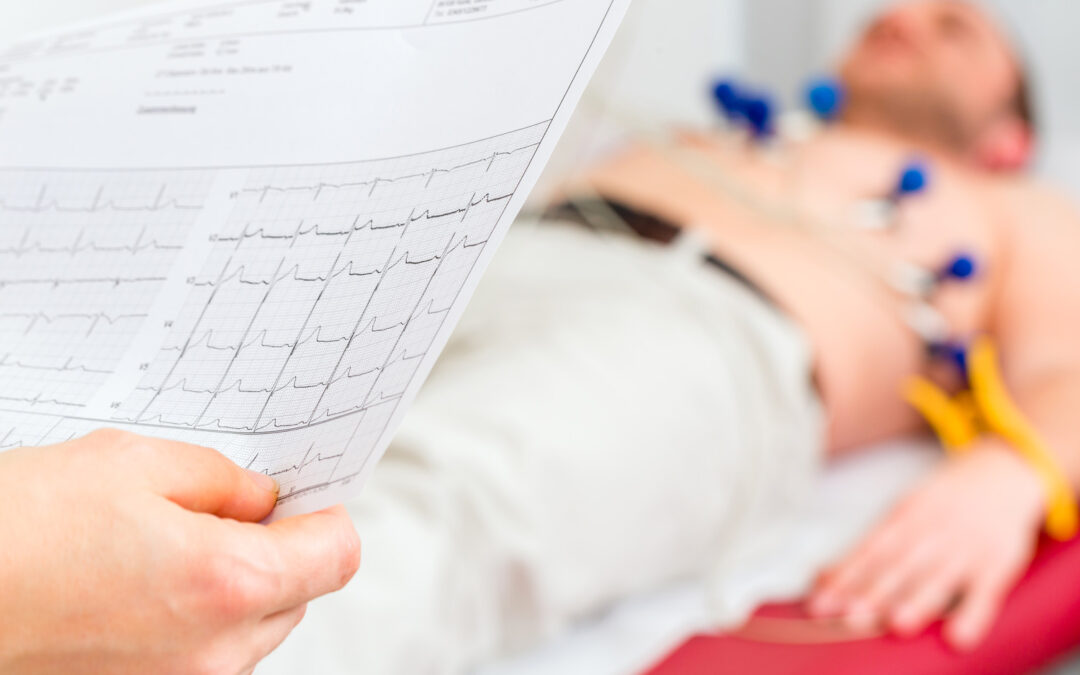The previous blog discussed identifying atrial fibrillation and some of the beneficial aspects of new technologies; now, what happens if you have atrial fibrillation? What’s the next step?
Well, if you do have Afib, you need a physical exam by a doctor to listen to your heart; they can hear the rhythm of your heart to see if you need an EKG, echocardiogram, to look for structural problems with your heart or one of the valves. You need a thyroid test because hyperthyroidism is another risk for Afib. It’s like funneling caffeine all the time if you have hyperthyroidism. It can give you Afib; not that funneling caffeine is a bad thing, but it is what caused Dr. Rainer’s Afib. You also need to be checked for renal and hepatic function; other issues can cause Afib.
So considering that dehydration might be related to magnesium and potassium deficiencies, we asked Dr. Rainer what we should be aware of and consider, going into the emergency department or getting additional tests. Dr. Rainer enlisted a series of signs and symptoms that might require an EKG (electrocardiogram): So if you have palpitations if you feel that your heartbeat is irregular, if your heart rate is above 110, if your heart rate is tachycardic 120-150-170 if you don’t feel stable if you feel dizzy standing up, but you can’t walk, if you feel out of sorts, if you feel chest pain, you might want to get an EKG.
There are treatments for Afib; the primary treatment is heart rate control. If you have a heart rate above 110, you need rate control with atrial fibrillation; Some doctors do that with beta-blocker type medications like metoprolol or a calcium channel blocker like diltiazem. Besides rate control, you need a blood thinner. It would be best if you had something that’s a blood thinner to help prevent clot formation. That prevents a stroke.
Older medicines like Coumadin and Aspirin were popular. coumadin was proven to be better than aspirin in the prevention of stroke; however, it caused some bleeding problems. They have come up with more direct anticoagulants such as Eliquis, Xarelto, and Pradaxa; these medications are as good or better than coumadin in preventing stroke. Some of them are better than coumadin to avoid bleeding. However, if you can get significant bleeding with any medications combined with aspirin, there’s more chance of bleeding intra-the brain or GI system.
Let’s talk about ablation. In the proper context, it can be an acceptable option. The doctor goes into your heart with a catheter and either cryoablate (or freeze) it or ablate it with heat/cauterization. For long-standing, persistent atrial fibrillation, it’s not usually the best thing; the best thing is to control the heart rate and thin the blood.
As with most conditions, you cannot out-prescribe a lifestyle issue. Weight loss is the single most important & effective treatment in the majority of cases.
Other methods have been FDA approved; there are devices that they can implant with surgery. Doctors can close off your atrial appendage, they burn your atrial appendage (area of the heart where the clots seem to begin) and scar it together, or they can put in a device. It’s like a bit of box that closes off your atrial appendage, so blood doesn’t go into it. This closing will keep you from having a stroke because the blood doesn’t pool anymore: consider this only if you’re already going to have open heart surgery for something else like a valve problem or something else.
It’s a bit extreme to put a device inside your heart when you could take medicine and slow your heart rate; should a cardiologist treat you for those diagnosed with Afib? Or just the primary care physician, paying close attention to creating, maintaining, and managing atrial fibrillation? Well, primary doctors can treat atrial fibrillation; the time to go to a cardiologist is if it’s unstable or not responding to treatment. If the heart rate is unstable or other heart problems are causing the atrial fibrillation, such as coronary artery disease or a valve problem, that probably means you need to go to the cardiologist; they would take care of your atrial fibrillation in addition to the other issues.
We used to admit every person with atrial fibrillation to the hospital; we would anticoagulate them with Lovenox, then bridge their therapy to coumadin; however, it’s not something you have to get admitted to the hospital anymore. With the newer anticoagulants, you can start those and begin the rate control; you don’t have to be in the hospital for that treatment. Anyone that goes to the ER and finds they had paroxysmal Afib should be seeing a primary doctor, but not necessarily a cardiologist unless it’s unstable.
If you found this article helpful and want to start taking steps toward reversing your chronic disease, Dr. Brewer and the PrevMed staff are ready to serve you no matter where you’re located.
To find out more, schedule a consult here: prevmedhealth.com
REFERENCES:
1.- https://prevmedhealth.com/prediabetes-a-risk-for-heart-attack-stroke/
2.- https://prevmedhealth.com/how-to-prevent-stroke-manage-atrial-fibrillation/
3.- https://prevmedhealth.com/can-you-take-vitamin-k2-with-blood-thinners/
4.- https://prevmedhealth.com/what-a-stress-test-can-and-cant-tell-you/
5.- https://prevmedhealth.com/15-rules-to-prevent-heart-attack-and-stroke-risk/
6.- https://prevmedhealth.com/natural-blood-thinners-for-atrial-fibrillation-and-stroke-prevention/
7.- https://prevmedhealth.com/inflammation-not-cholesterol-is-the-bigger-heart-disease-risk/
8.- https://prevmedhealth.com/cardiovascular-inflammation-and-plaque-formation/
